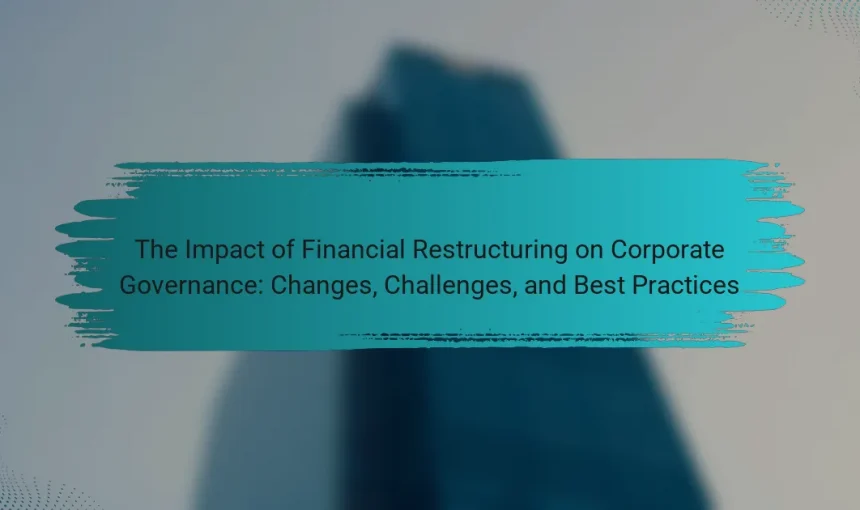The Post-Restructuring Phase is a critical period that follows an organizational restructuring, emphasizing the monitoring of change implementation and compliance with new policies. This phase assesses the effectiveness of restructuring efforts while aiming to stabilize the organization and promote long-term growth strategies. Key activities during this phase include evaluating employee performance and adapting processes based […]
Debt relief options in the US include debt settlement, debt consolidation, bankruptcy, and credit counseling. Debt settlement involves negotiating with creditors to reduce the total amount owed, potentially lowering debt but impacting credit scores. Debt consolidation combines multiple debts into a single loan with a lower interest rate, simplifying payments. Bankruptcy provides legal protection and […]
Small businesses in the US face critical legal considerations during financial restructuring, particularly regarding compliance with federal and state bankruptcy laws. Understanding the processes of Chapter 11 and Chapter 13 bankruptcy is essential, as is navigating creditor negotiations and potential disputes. Businesses must also consider the implications for contracts, leases, and employee rights, often necessitating […]
Financial restructuring is a process that significantly alters corporate governance by changing decision-making dynamics among shareholders, creditors, and management. This article explores the impact of financial restructuring on governance structures, highlighting key changes such as increased board oversight, enhanced accountability, and improved transparency in financial reporting. It discusses how these shifts can lead to better […]
The main entity discussed is asset liquidation, a critical process in US financial restructuring aimed at converting an entity’s assets into cash to satisfy creditor obligations. The article outlines the steps involved in asset liquidation, starting with asset identification and valuation, followed by necessary legal actions such as bankruptcy filing. It details the management of […]
Economic conditions are a critical factor influencing asset valuation, impacting prices through various mechanisms such as demand, investor confidence, and interest rates. During periods of economic growth, asset prices generally rise, while downturns lead to declines in value due to reduced demand and increased risk aversion. Key elements affecting asset valuation include interest rates, inflation, […]
Debt consolidation for US businesses involves merging multiple debts into a single loan, streamlining debt management and reducing the number of payments. This process can lead to lower interest rates and improved cash flow, allowing businesses to pay off high-interest debts more effectively. By consolidating debts, companies may also enhance their credit scores through reduced […]
Debt restructuring strategies refer to the methods utilized by individuals or organizations to alter the terms of their debt obligations, aiming to enhance financial stability and facilitate repayment. This article analyzes various types of debt restructuring strategies, including negotiating lower interest rates, extending repayment periods, and converting debt to equity. It outlines the implementation steps […]
Credit counseling is a service designed to assist individuals in managing debt and enhancing their financial stability. It involves personalized assessments of financial situations, guidance on budgeting, and strategies for debt repayment, including negotiations with creditors. The article explores the significance of credit counseling in the context of financial restructuring in the U.S., detailing its […]
The article focuses on key metrics for assessing asset value in US financial restructuring, specifically highlighting Enterprise Value (EV), Debt-to-Equity Ratio, and Net Asset Value (NAV). These metrics are essential tools for evaluating the financial health and potential recovery of distressed companies. The discussion includes practical applications of these metrics in real-world scenarios, emphasizing their […]









